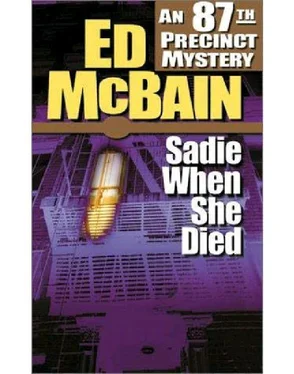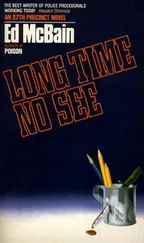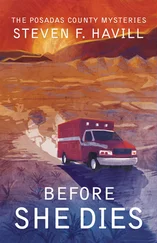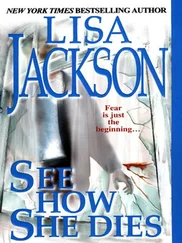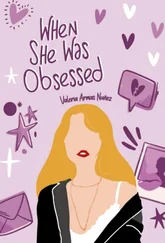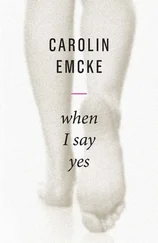Ed McBain - Sadie When She Died
Здесь есть возможность читать онлайн «Ed McBain - Sadie When She Died» весь текст электронной книги совершенно бесплатно (целиком полную версию без сокращений). В некоторых случаях можно слушать аудио, скачать через торрент в формате fb2 и присутствует краткое содержание. Жанр: Полицейский детектив, на английском языке. Описание произведения, (предисловие) а так же отзывы посетителей доступны на портале библиотеки ЛибКат.
- Название:Sadie When She Died
- Автор:
- Жанр:
- Год:неизвестен
- ISBN:нет данных
- Рейтинг книги:4 / 5. Голосов: 1
-
Избранное:Добавить в избранное
- Отзывы:
-
Ваша оценка:
- 80
- 1
- 2
- 3
- 4
- 5
Sadie When She Died: краткое содержание, описание и аннотация
Предлагаем к чтению аннотацию, описание, краткое содержание или предисловие (зависит от того, что написал сам автор книги «Sadie When She Died»). Если вы не нашли необходимую информацию о книге — напишите в комментариях, мы постараемся отыскать её.
Sadie When She Died — читать онлайн бесплатно полную книгу (весь текст) целиком
Ниже представлен текст книги, разбитый по страницам. Система сохранения места последней прочитанной страницы, позволяет с удобством читать онлайн бесплатно книгу «Sadie When She Died», без необходимости каждый раз заново искать на чём Вы остановились. Поставьте закладку, и сможете в любой момент перейти на страницу, на которой закончили чтение.
Интервал:
Закладка:
“You son of a bitch,” Carella said, and burst out laughing.
“How do you like the job he did for you guys?” Grossman asked.
“Beautiful,” Carella said.
“Practically handed it to you on a platter.”
“No question.”
“The Police Laboratory strikes again,” Grossman said. “Pretty soon we’ll be able to do without you guys entirely.”
“I know. That’s why I came down to see you. I want to turn in my badge.”
“About time,” Grossman said. “Why did you come down? Big case you want us to crack in record time?”
“Nothing more important than a couple of purse snatches on Culver Avenue.”
“Bring the victims in. We’ll try to lift some latents from their backsides,” Grossman said.
“I don’t think they’d like that,” Carella said.
“And why not? We would treat the ladies with great delicacy.”
“Oh, I don’t think the lady would mind. But the guy whose purse was snatched . . .”
“You son of a bitch!” Grossman shouted, and both men began laughing hysterically.
“Seriously,” Carella said, laughing.
“Yes, yes, seriously,” Grossman said.
“Listen, I’m really trying to be serious here.”
“Yes, yes, of course.”
“I came down to thank you.”
“For what?” Grossman said, sobering immediately.
“I was about to go out on a limb. The stuff you got for us clinched the case and made an arrest possible. I wanted to thank you, that’s all.”
“What kind of a limb, Steve?”
“I thought the husband did it.”
“Mmm?”
“Mmm.”
“Why?”
“No reason.” Carella paused. “Sam,” he said, “I still think he did it.”
“Is that why you’re having lunch with him today?” Grossman asked.
“Now how the hell do you know that ?” Carella said.
“Ah-ha,” Grossman answered. “He was in Rollie Chabrier’s office when he called you. I spoke to Rollie a little while after that, and . . .”
“Good day, sir,” Carella said. “You’re too much of a smart-ass for me.”
Most policemen in the city for which Carella worked did not very often eat in restaurants like The Golden Lion. They ate lunch at one or another of the greasy spoons in and around the precinct, where the meal was on the arm, tribute to Caesar. Or they grabbed a quick sandwich and a cup of coffee at their desks. On their own time, when they entertained wives or girl friends, they often dropped in on restaurants where they were known as cops, protesting demonstratively when the proprietor said, “This is on the house,” but accepting the gratuity nonetheless. Not a single cop in the city considered the practice dishonest. They were underpaid and overworked and they were here to protect the average citizen against criminal attack. If some of those citizens were in a position to make the policeman’s lot a bit more tolerable, why should they embarrass those persons by refusing a free meal graciously offered? Carella had never been inside The Golden Lion. A look at the menu posted on the window outside would have frightened him out of six months’ pay.
The place was a faithful replica of the dining room of an English coach house, circa 1637. Huge oaken beams crossed the room several feet below the vaulted ceiling, binding together the rough white plastered walls. The tables were sturdy, covered with immaculate white cloths, sparkling with heavy silver. Here and there throughout the room there hung the portraits of Elizabethan gentlemen and ladies, white-laced collars and cuffs discreetly echoing the color of the walls, rich velvet robes or gowns adding muted touches of color to the pristine candlelit atmosphere. Gerald Fletcher’s table was in a secluded corner of the restaurant. He rose as Carella approached, extended his hand, and immediately said, “Glad you could make it. Sit down, won’t you?”
Carella shook Fletcher’s hand, and then sat. He felt extremely uncomfortable, nor could he tell whether his discomfort was caused by the room or the man with whom he was dining. The room was intimidating, true, brimming with lawyers discussing their most recent cases in voices best saved for juries. In their presence Carella felt somewhat like a numbers collector in the policy racket, picking up the work to deliver it to the higher-ups for processing and final disposition. The law was his life, but in the midst of lawyers he felt like a menial. The man sitting opposite him was a criminal lawyer, which was intimidating in itself. But he was something more than that, and it was this perhaps that made Carella feel awkward and clumsy in his presence. It did not matter whether or not Fletcher truly was cleverer than Carella, or more sophisticated, or better at his work, or handsomer, or more articulate—the truth was unimportant. Carella felt Fletcher was all of these things; the man’s manner and bearing and attack (yes, it could be called nothing else) utterly convinced Carella that he was in the presence of a superior being, and this was as good as, if not more potent than, the actual truth.
“Would you care for a drink?” Fletcher asked.
“Well, are you having one?” Carella asked.
“Yes, I am.”
“I’ll have a scotch and soda,” Carella said. He was not used to drinking at lunch. He never drank at lunch when he was on duty, and the next time he would drink at lunch in his own home would be on Christmas day, when the family came to celebrate the holiday.
Fletcher signaled for the waiter. “Have you ever been here before?” he asked Carella.
“No, never.”
“I thought you might have. It being so close to all the courts. You do spend a lot of time in court, don’t you?”
“Yes, quite a bit,” Carella said.
“Ah,” Fletcher said to the waiter. “A scotch and soda, please, and another whiskey sour for me.”
“Thank you, Mr. Fletcher,” the waiter said, and padded off.
“I cannot tell you how impressed I was by the speed with which you people made your arrest,” Fletcher said.
“Well, we had a lot of help from the lab,” Carella said.
“Incredible, wasn’t it? I’m talking about the man’s carelessness. But then I understand from Rollie . . .” Fletcher paused. “Rollie Chabrier, in the D.A.’s office. I believe you know him.”
“Yes, I do.”
“He’s the one who gave me your home number. I hope you won’t think too badly of him for it.”
“No, no, quite all right,” Carella said.
“I called you directly from his office this morning. Quite coincidentally, he’ll be prosecuting the case against Corwin.”
“Scotch and soda, sir?” the waiter asked rhetorically, and set the drink down before Carella. He put the second whiskey sour on the table before Fletcher and then said, “Would you care to see menus now, Mr. Fletcher?”
“In a bit,” Fletcher said.
“Thank you, sir,” the waiter answered, and went off again.
Fletcher raised his glass. “Here’s to a conviction,” he said.
Carella lifted his own glass. “I don’t expect Rollie’ll have any trouble,” he said. “It looks airtight to me.”
Both men drank. Fletcher dabbed his lips with a napkin and said, “You never can tell these days. I practice criminal law, as you know, and I’m usually on the other side of the fence. You’d be surprised at the number of times we’ve won acquittal on cases that seemed cinches for the people.” He lifted his glass again. His eyes met Carella’s. “I hope you’re right, though,” he said. “I hope this one is airtight.” He sipped at the drink. “Rollie was telling me . . .”
“Yes, you were starting to say . . .”
“Yes, that the man is a drug addict . . .”
Читать дальшеИнтервал:
Закладка:
Похожие книги на «Sadie When She Died»
Представляем Вашему вниманию похожие книги на «Sadie When She Died» списком для выбора. Мы отобрали схожую по названию и смыслу литературу в надежде предоставить читателям больше вариантов отыскать новые, интересные, ещё непрочитанные произведения.
Обсуждение, отзывы о книге «Sadie When She Died» и просто собственные мнения читателей. Оставьте ваши комментарии, напишите, что Вы думаете о произведении, его смысле или главных героях. Укажите что конкретно понравилось, а что нет, и почему Вы так считаете.
